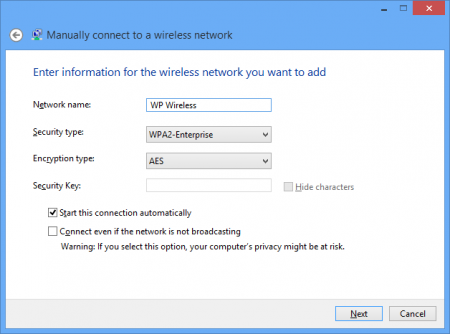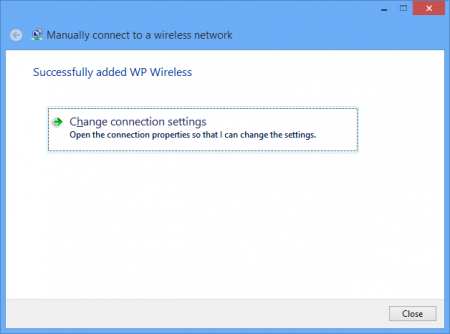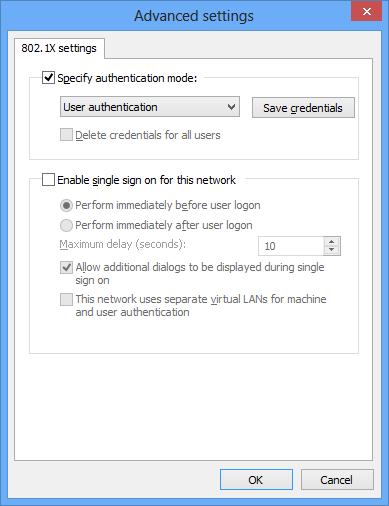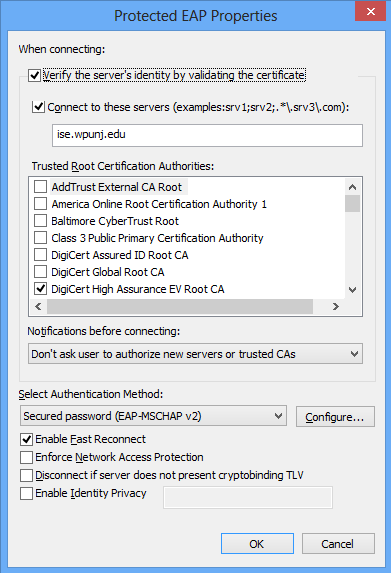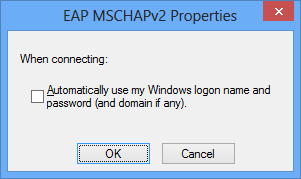Manually Connect WP Wireless: Difference between revisions
Jump to navigation
Jump to search
Tavoularisr (talk | contribs) No edit summary |
mNo edit summary |
||
| Line 24: | Line 24: | ||
[[Image:Change Connection Settings.png|center|450px]] | [[Image:Change Connection Settings.png|center|450px]] | ||
</div> | </div> | ||
<li>Click the '''Security''' Tab at the top and click on Advanced Settings | <li>Click the '''Security''' Tab at the top and click on Advanced Settings. Security Type: WPA2-Enterprise, Encryption: AES | ||
[[Image:Security_Tab.png|center|470px]] | [[Image:Security_Tab.png|center|470px]] | ||
</div> | </div> | ||
Revision as of 08:40, 5 August 2014
Manually adding the WP Wireless Network can fix the following problems
- Microsoft Windows security warning when connecting to WP Wireless
- Domain Machines trying to logon to WP Wireless with the local machine credentials
- Having to enter username/password twice when connecting to WP Wireless
In order to manually connect to WP Wireless
- Manually Add a Wireless Network
- For Windows 7 clients, go to the Network and Sharing Center and then click Manage Wireless Networks
- For Windows 8 Clients, go to the Network and Sharing Center and then click Set up a new connection or Network
- Enter WP Wireless for Network Name
- Select WPA2-Enterprise for Security Type
- Select AES for Encryption Type
- Click Next
- Click on Change Connection Settings
- Click the Security Tab at the top and click on Advanced Settings. Security Type: WPA2-Enterprise, Encryption: AES
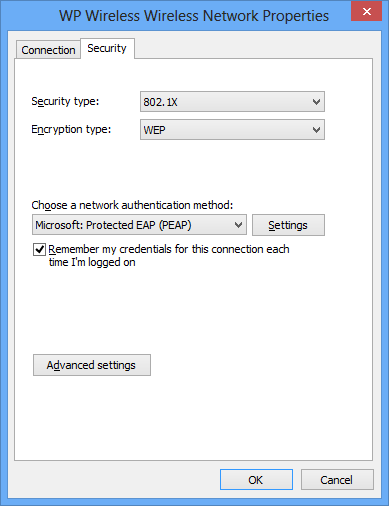
- Check Specify authentication mode and select User authentication and press ok
- Click on Settings next to Microsoft: Protected EAP (PEAP)
- Check Verify the Server's identity by validating the certificate
- Check Connect to these servers
- Specify the following servers: ise.wpunj.edu
- Check any Trusted Root Certification Authorities from DigiCert High Assurance EV Root CA
- Select Don't ask user to authorize new servers or trusted CAs from the Notifications before connecting
- Click on Configure next to Secured Password (EAP-MSCHAV v2)
- Make sure that the option to automatically use your Windows logon name and password is unchecked
- Select OK, save all settings, and attempt to connect.
